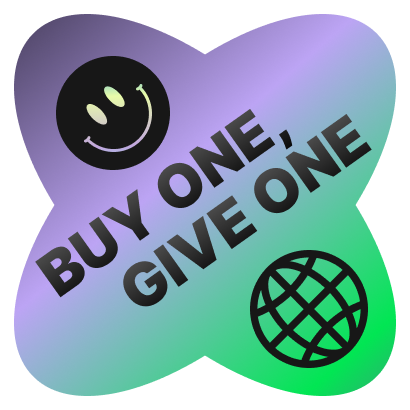Rewriting the Rules of Money: How Maslow is Hacking Capitalism for Good
When Kane Jackson was three, he wanted to be a truck. Not a truck driver—a truck. It was the first of a few ideas that didn’t quite work out.
Fast-forward to today, and Kane’s trying something just as improbable: rebuilding the global finance industry from the ground up, then giving it back to the people.
As co-founder and CEO of Maslow, a new Australian fintech startup, Kane is taking a paramedic’s view of money—treating finance not as a product, but as a broken system in need of radical care. In this episode of The Mucky Middle, we unpack Maslow’s big, messy, inspiring mission to turn one of the most extractive systems on Earth into a force for collective wellbeing.
1. A Paramedic’s Perspective on Finance
Kane’s journey started in emergency services, where he saw society’s cracks up close.
“Being a paramedic felt like triaging society’s problems. People weren’t calling an ambulance because they were sick—they were calling because they had no one else.”
From dropped support systems to domestic violence and chronic financial stress, Kane saw the same pattern again and again: inequality feeding into crisis.
It was only after stepping into the finance world that he recognised the same root problem: a system designed to benefit those who already have power—leaving everyone else to fend for themselves.
2. Finance Is the Biggest Lever—And the Most Broken
Maslow isn’t building an app. They’re building a new business model.
“Finance is the only industry that sells the exact thing its shareholders want—money. The more they get, the less customers get.”
Banks, insurers, and investment firms are all caught in a perverse incentive loop: maximise profit by extracting from the very people they serve. That might be tolerable in other industries, but in finance—a system that underpins every aspect of modern life—it’s disastrous.
Maslow’s vision is deceptively simple: make the finance industry customer-owned, margin-free, and trust-based.
3. Building Costco for Money
- To understand Maslow’s model, think Costco meets Up Bank.
- A monthly membership fee
- Access to financial products (banking, insurance, loans, investments)
All at cost price, no margin, no upsell
“The idea is: what if the finance provider never profited from the products themselves?”
By removing profit from products, Maslow severs the core conflict between shareholders and customers. Instead, it earns revenue from service—not extraction. Over time, as volume scales, Maslow can build its own white-label products, improving quality and dropping prices further.
4. Capitalism Isn’t the Enemy—Unrestricted Capitalism Is
Kane doesn’t believe money is evil. He believes unchecked incentives are.
“Capitalism is the best of a bad bunch of systems. But we’ve turbocharged it to a place where it no longer serves the collective.”
Maslow’s investors have a return cap—currently 200x and lowering each round. Once they hit it, their equity is transferred to a customer trust. Over time, Maslow will become 95% customer-owned.
It’s not just an exit strategy. It’s a structural bet on longevity, community, and shared value.
5. Designing for Trust in a System That Has Lost It
Most people don’t trust their bank. But they’re forced to use it anyway.
Maslow flips the dynamic: build a place where people feel safe doing money. It’s not about maximising engagement or fees. It’s about minimising stress and misalignment.
“We had customers paying us just to feel safe—without using the product. That’s when we realised people were desperate for a trustworthy space to manage their finances.”
Trust is built into Maslow’s bones—from its governance model to its refusal to profit from lending, even to high-risk customers.
6. VC Funding Templates Are Part of the Problem
Kane isn’t shy about the fact that raising money has been brutally hard.
“We’re three queer founders from outside the finance industry, trying to build something new. That doesn’t fit any VC template.”
Most VCs are stuck in the same extractive logic: maximise returns fast. That model simply doesn’t fit Maslow’s DNA. So they’ve turned to mission-aligned investors, industry veterans, and customer backers through equity crowdfunding.
“We will fail before we sell out.”
That’s not a tagline. It’s literally in their constitution.
7. Maslow Isn’t a Product—It’s a System Hack
Maslow’s roadmap starts with banking, then expands into insurance, lending and investment—all sold at cost, with profits reinvested into the ecosystem.
And the ambition doesn’t stop there.
Kane envisions a future where customers can opt to subsidise others, where collective benefit trumps individual gain, and where finance becomes a community-managed utility—not a mechanism for wealth concentration.
Sound utopian? Maybe. But Maslow’s already raised money, attracted a world-class team, and laid the legal groundwork. And as Kane says:
“We’re more likely to fail than succeed. But we have to try.”
TL;DR: Maslow’s Manifesto
Here’s your cheat sheet for rewriting capitalism:
- Finance isn’t broken—it’s built this way. Rebuild it.
- Profit shouldn’t come from your customers’ stress
- Charge for service, not extraction
- Cap investor returns and share ownership
- Build trust first—then products
- Fund differently. Grow differently. Govern differently
If you’re not changing the system, you’re upholding it
Want to help build a future where finance works for people, not the other way around?
At Paper Moose, we help purpose-led brands like Maslow tell brave stories, shift behaviour, and win hearts. Let’s chat.
We acknowledge the Traditional Custodians of the land upon which we create, the Gadigal People of the Eora Nation. We pay our respect to their Elders past and present, and extend that respect to all Aboriginal and Torres Strait Islander peoples today.
Always was, always will be, Aboriginal land.



